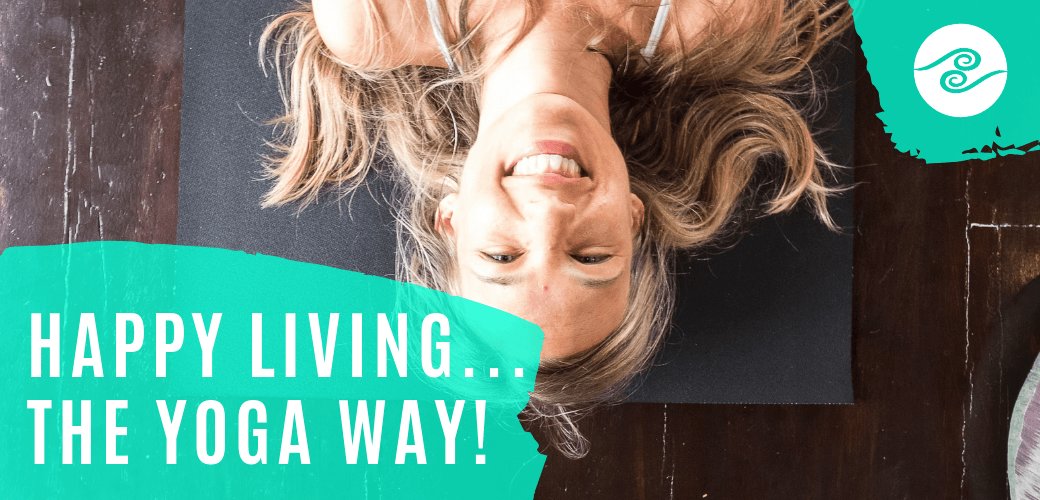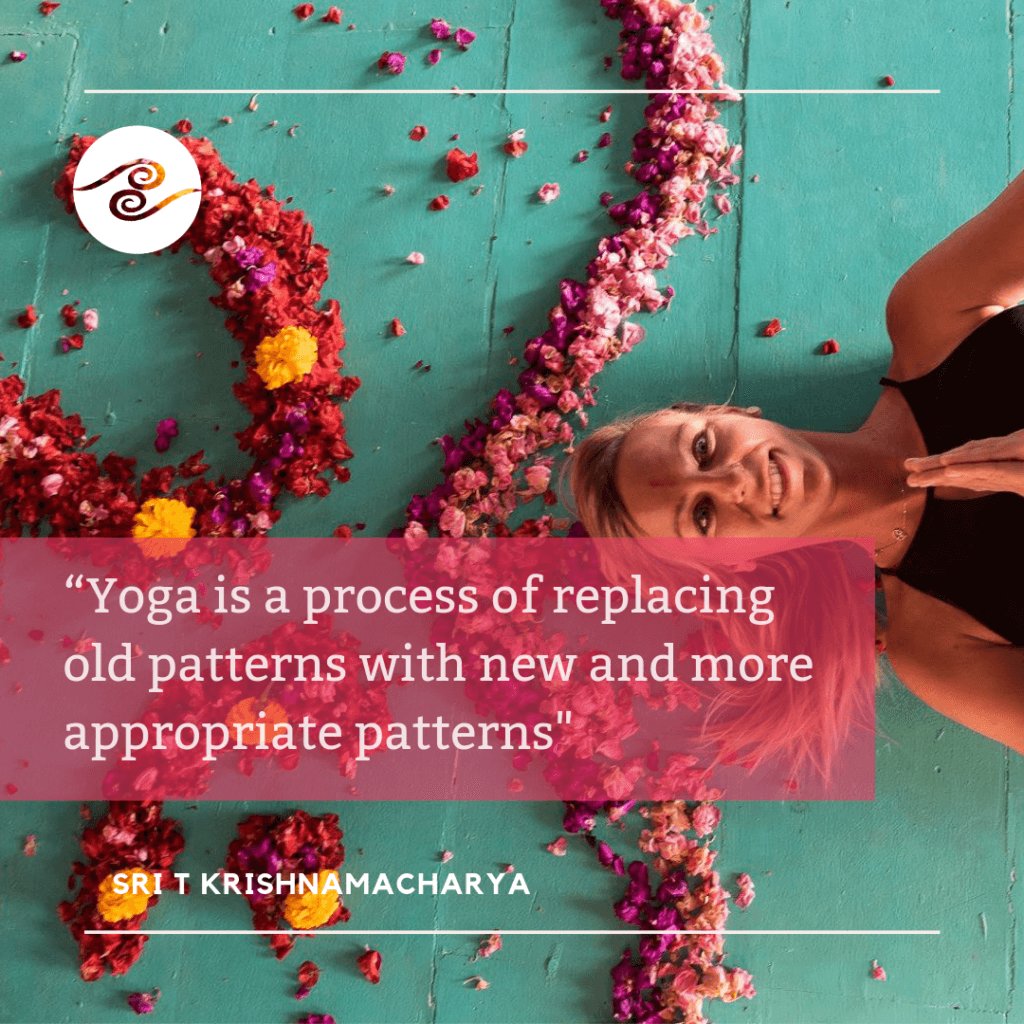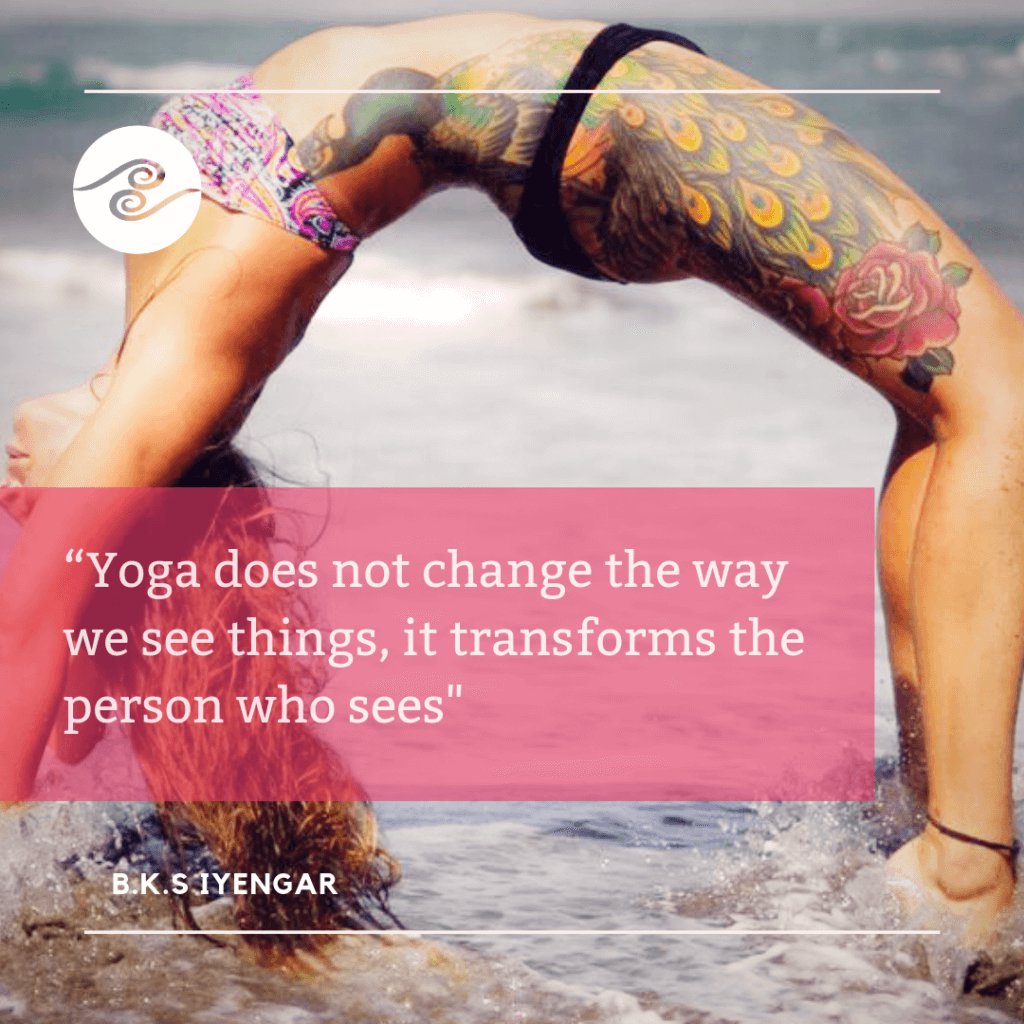
Happy Living… the Yoga Way
Yoga Teacher Training… the Life-changing Magic of Yoga Philosophy
One of our favourite things on the Santosha Level 1 Yoga Teacher Trainings is seeing our yogis minds blown by the amazingness of yoga philosophy! Although these teachings are thousands of year old, they are just as relevant and applicable today – and we love the ‘aha’ moments of students seeing just how applying these teachings can really make a huge difference to their own lives.
Many yogis are unaware of the vast depth of philosophical knowledge underpinning the physical practices we typically think of when we do yoga in the west. If you think of your yoga class as the tip of the iceberg, hidden underneath is an incredible wealth of wisdom to draw from for a happier, healthier and more contented way of life!
The yoga found in gyms and studios usually focusses on the physical postures we do in class, known in sanskrit as “Asanas”.
Traditionally however, Asanas are only one of the eight limbs which make up yoga, and are by no means the only, or most important aspect of practicing yoga. In fact, in Pantanjali’s “yoga sutras” – the philosophical texts behind yoga – asanas only make it to being the third “limb”.
Our Yoga Teacher Training students get the benefit of a dedicated yoga philosophy teacher, bringing these concepts to life for them. It’s a highlight for many to learn the deep wisdom under pining our asana practice.
So what are these two first limbs that compose the yoga tree? Yamas and Niyamas are the moral and ethical principles which guide us in living with others (yamas) and within ourselves (niyamas) – in order to live a fulfilled and happy life. They direct us towards health, harmony, peace, satisfaction and well-being. So we think they are pretty important!
They are not however a system of what is “right” and what is “wrong”; rather they are guidelines for living that came about after lifetimes of observation and learning by the sages of ancient India.
Yogis devised the Yamas and Niyamas not as a way of judging or controlling people (which unfortunately may be what now springs to mind when we think of such things); but as a way of sharing their knowledge of which behaviours lead to a life of health and well-being… and which ones didn’t!
They did all the hard work of living and observing and making mistakes so we don’t have to. We can just get on with the living bit 🙂

Keep in mind that Yamas and Niyamas are suggestions, not rules. But if you are interested in learning more about how to become happier and more at peace with yourself and the world around you we definitely recommend you read more and take anything on which resonates with you.
The Yamas
These are behaviours which control any negative tendencies, and instead offer a more beneficial way of thinking and acting within society:
- Ahimsa (non-violence)
- Satya (truth)
- Asteya (non-stealing, or non-cheating)
- Brahmacharya (self-restraint and moderation in all you do)
- Aparigraha (non-coveting)
The Niyamas
These are actions which are necessary to achieve a state of balance and happiness within ourselves:
- Sauca (purity)
- Santosha (contentment)
- Ishawar-Pranidhana (surrender)
- Tapas (motivation/ disclipline – our “inner fire”)
- Svadhyaya (study, observation of the self)
We will go more in-depth into each of these concepts in future blog posts, so watch this space. Or join us on the Yoga Teacher training 🙂
The first step to practicing the Yamas and Niyamas is simply awareness and observation – learning about the different behaviours and seeing if they could be applicable in your life.

When we go through the Yamas and Niyamas individually we will suggest you try and practice each one for a week, and simply see what happens.
Personally I find reminding myself of each concept and keeping them in mind while going about my daily life really helps. As you make decisions and choose your course of action, have these precepts in the front of your mind to guide you on the path.
Want a deeper dive into the ocean of yoga wisdom? Our Level 1 Yoga Teacher Training course might be just the place for you…
Ready to start your extraordinary Yoga adventure in paradise? Visit our Level 1 RYT-200 Yoga Teacher training page and start the first step on your new path today!


Sorry, the comment form is closed at this time.